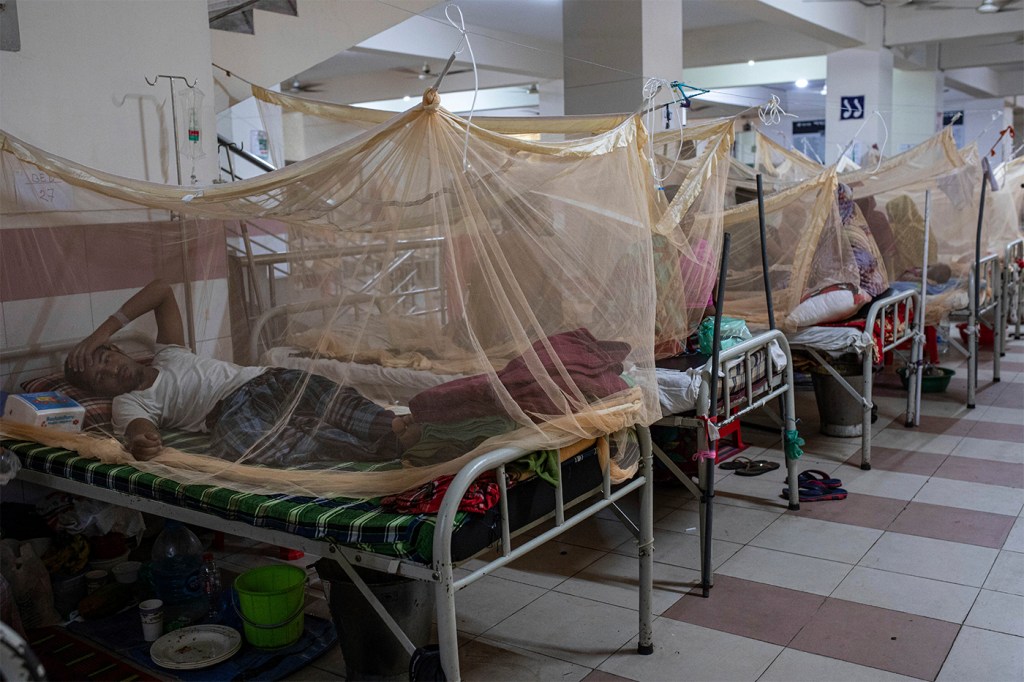Neglected tropical diseases sicken and disable millions of people. A Northeastern professor is part of a road map for change

Northeastern University professor Richard Wamai was walking with two students in the scenic Tugen Hills above the Rift Valley in Kenya this month when he met a man who described being stricken by a horrific tropical disease, elephantiasis.
The man pointed to a tree trunk and said his leg had swollen to a size just as large. Although the man recovered from the acute stage, he told Wamai he’d lost feeling in his legs and toes and could no longer wear shoes.
“There’s a stigma,” says Wamai, who will help lead the annual meeting of the New England Neglected Tropical Diseases Consortium on Wednesday, Sept. 25, at Novartis Biomedical Research in Cambridge, Massachusetts.
Wamai co-founded the organization with a colleague at Boston University five years ago.
“Neglected tropical diseases cause huge burdens from a disability perspective,” says Wamai, who co-founded the organization five years ago. “They are impoverishing.”
This year’s meeting will bring together scientists working to achieve the World Health Organization’s goal of reducing the incidence of a score of neglected tropical diseases by 2030.
What are neglected tropical diseases?
WHO estimates that one billion people suffer from neglected tropical diseases caused by a variety of pathogens including viruses, bacteria, parasites, fungi and toxins.
The list includes Chagas disease, spread by the bite of an infected insect, which can lead to debilitating heart and gut problems.
Other diseases produce scarring, such as cutaneous leishmaniasis, whose sufferers can develop lesions or disfiguring wounds on the face.

“The social and psychosocial and economic impact the disease has in the community is substantive,” says Wamai, who has documented this in a scientific paper co-authored with several students.
Wamai himself established a research and health center in Kenya for patients with a deadly version of leishmaniasis known visceral leishmaniasis. It is almost always fatal without treatment.
Snake bites are also included on WHO’s neglected tropical disease list, he says. They kill 81,410 to 137,880 people annually, mainly in Asia, Africa and Latin America and also can result in permanent tissue damage and limb amputation.
“There is anti-venom available, but the quantity is limited,” says Wamai, Northeastern professor of cultures, societies and global studies.
Lack of adequate treatment supplies is one condition that can mark a tropical disease as neglected.
A historic lack of funding for research and paltry health delivery systems also play a role in the persistence of neglected tropical diseases, which mainly affect impoverished, rural areas of the globe, Wamai says.
“Whenever I’m speaking about my work, I talk about not only ending neglect of the disease but also ending the neglect of communities,” he says.
Featured Posts
A road map to eradication
WHO’s 2030 road map targets reducing the burden of neglected tropical diseases — including totally eradicating guinea worm disease and a chronic skin disease called yaws — is ambitious but achievable, Wamai says.
Already, water filtration, health education and community-based volunteers have brought the number of human cases of guinea worm disease — which causes skin eruptions that can lead to tetanus and gangrene — from 3.5 million in 1986 to four so far in 2024, according to the Carter Center.
The center says guinea worm disease could become only the second human disease in history to be eradicated, after smallpox, and the first to be eliminated without a vaccine.
The consortium being held under Northeastern’s auspices at Novartis is scheduled to bring together about 80 researchers, including doctoral and master’s degree students from across the region as well as Northeastern undergraduate students who did co-ops at Wamai’s center, The Research on Multi-Disease and Educational Services Center.
The scientists are expected to discuss everything from new medications to community health care strategies, says Wamai, who is applying for a grant for a new diagnostic tool for visceral leishmaniasis, the world’s second-largest parasitic killer after malaria.
“That work will involve my center here in Kenya as well as a center in Ethiopia. We need better, rapid diagnosis to eliminate the disease in East Africa,” he says.
Wamai says Northeastern co-op students in Kenya help with data, patient files and medication inventory.
“We are pleased with the work that we do because it’s not just research, it’s not just publishing. We are actually providing training and active service to the community through the hospital system and mobile clinics,” he says.
To eliminate neglected tropical diseases, Wamai says, “We need better treatment, data and surveillance, and we need to strengthen our health systems.”
.





